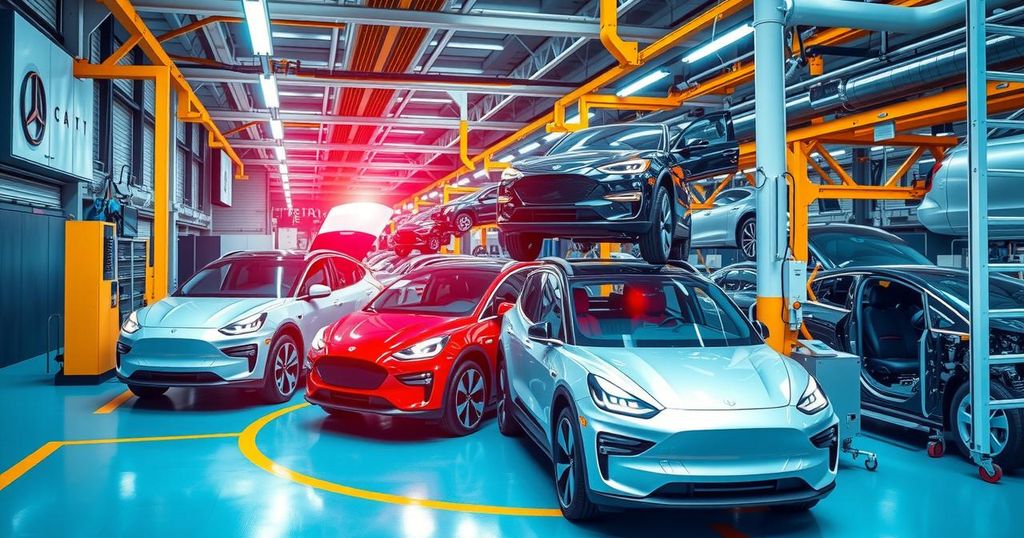BYD Starts Production at Camaçari Plant in Brazil

- BYD has launched production at its Camaçari plant in Brazil, the first outside China.
- The plant is expected to create up to 10,000 jobs in the region, with immediate openings for 3,000 more positions.
- Tensions arise as Brazil raises tariffs on electric vehicle imports from 18% to 25%, impacting BYD’s pricing strategy.
- BYD seeks a reduced tariff of 10% for its semi-knock-down vehicles, pending government response.
BYD Expands Global Presence with New Brazil Plant
BYD has officially kicked off production at its Camaçari plant in Brazil, marking a significant milestone as the first electric vehicle (EV) assembly site for the company outside of China. The initial production will include three models: the BYD Dolphin Mini, which goes by the name Seagull in China, as well as the Song Pro and the BYD Qin Plus DM-i, also known as the King. This move signifies BYD’s strong commitment to expanding its footprint in the South American EV market, responding to the rising demand for electric vehicles in Brazil.
Investment and Job Creation Highlighted in Announcement
The Camaçari facility, previously a Ford manufacturing site, boasts an impressive annual capacity of 150,000 units. With 26 warehouses and a dedicated test track, it is set up to support both battery electric vehicles (BEVs) and plug-in hybrid vehicles (PHEVs). BYD’s acquisition of the facility was a substantial investment of R$300 million, which is about 55 million USD. According to company statements, they are pledging a total investment of R$5.5 billion (approximately 1 billion USD), with R$1.4 billion already deployed. Importantly, this project is expected to create around 10,000 jobs, and 1,000 positions have already been filled, with an announcement to open an additional 3,000 roles to come.
Local Partnerships and Tariff Challenges Surface
As part of its production strategy, the plant operates on a semi-knock-down (SKD) basis, meaning that major components of the vehicles are shipped from China for final assembly in Brazil. BYD aims to enhance its local production capabilities by incorporating local sourcing for parts such as stamping and welding, and has already partnered with Continental for tire manufacturing in Brazil. Coinciding with the plant launch, Brazil raised tariffs on imports of all-electric vehicles significantly, which now stands at 25%, while PHEV tariffs have increased to 28%. BYD has requested a reduction in the imported SKD tariffs to 10% but is still awaiting a response from Brazilian authorities regarding this proposal.
In summary, BYD’s production launch in Brazil represents a pivotal development for the company and the local EV market. The investment not only underscores BYD’s commitment to expanding its global reach but also promises significant job creation. However, the increased tariffs pose a challenge, as the automaker seeks favorable treatment for its SKD imports, revealing the complexities of navigating international markets.





